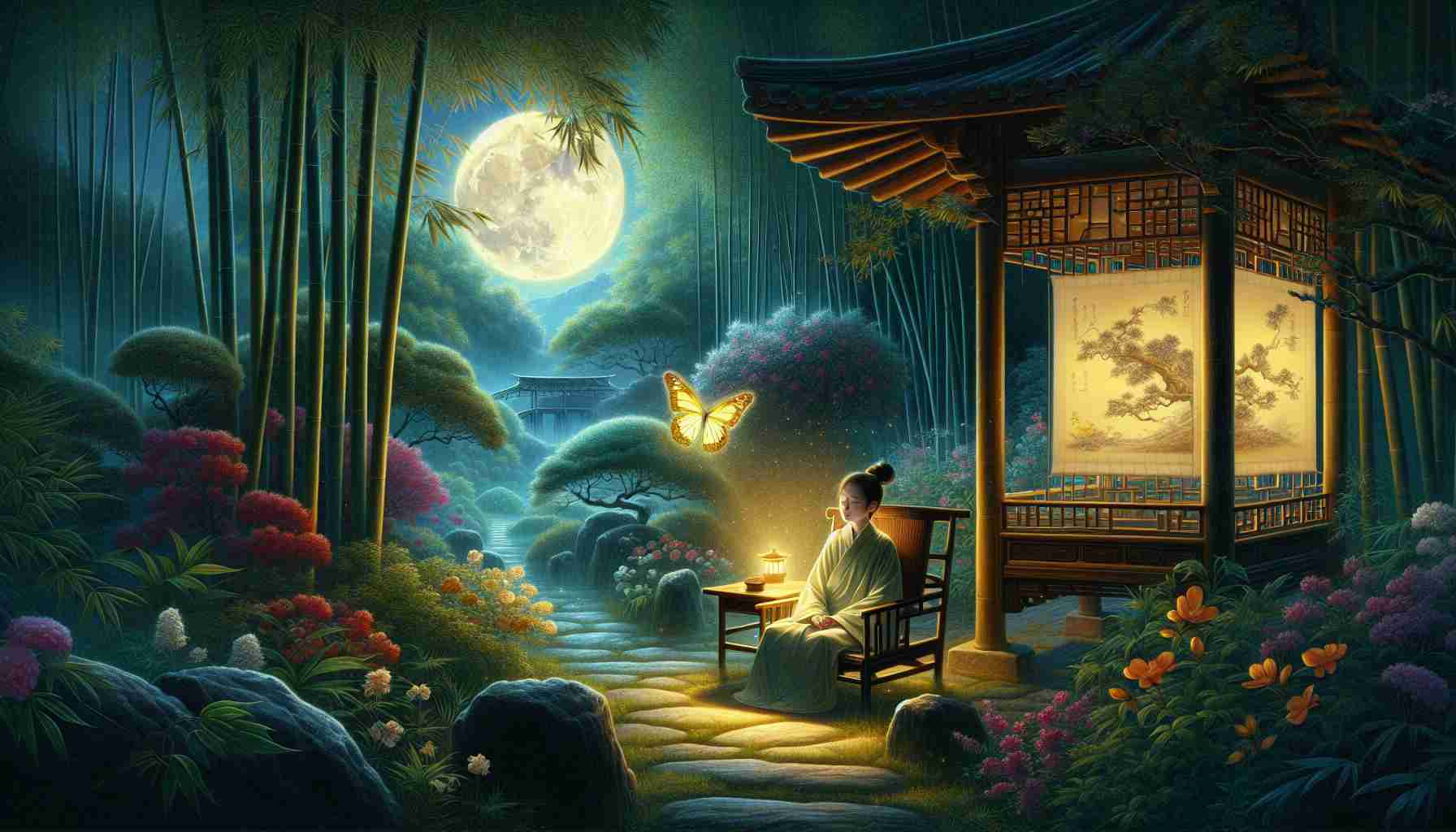

The road was long, and the sun hung low behind the hills. My sandals were dusty, and my thoughts were heavy. I was a painter once—a good one. People cheered when I showed them my work. But over time, something changed. I no longer painted for joy. I painted only to be praised. One morning, I left my home with just a walking stick and an old rice sack. I didn’t know where I was going. I just wanted to feel peace again.
That evening, I reached a small village tucked between two green mountains. The people there seemed calm and unbothered. Children laughed. The wind rustled through bamboo. No one looked busy. I sat beside an old man who was weaving a basket. He smiled at me, like he already knew everything I was carrying in my heart.
“You’ve come far,” he said without looking up.
“Yes,” I sighed. “I’m searching for… I don’t know. Something real.”
He chuckled softly. “Perhaps you’re looking for what can’t be found by searching.”
That night, I stayed in a tiny hut the villagers offered me. The next morning, instead of rushing off, I stayed another day. Then one more. Days turned into weeks.
I stopped painting.
At first, it scared me. Who was I if I didn’t paint? What if people forgot me?
But the village kept moving gently forward—without rushing, without pride. The wind swept the paths clean. Water carried leaves down the stream. The people worked when they needed, rested when they didn’t. There was no need to force anything.
One day, the old man brought me a blank scroll.
“You used to paint,” he said, “but now you wait. That is good.”
I didn't know what to do with it. I let it sit by the window, untouched. Weeks passed.
One morning, while drinking tea, I watched a pair of birds chase each other through the trees. Without thinking, my hand reached for the brush. I didn’t plan the painting. I didn’t think of beauty or praise. My brush moved like the wind through leaves. When I was done, I looked at it—and for the first time in a long while, I smiled from inside.
The old man came to see. He nodded and said quietly, “Now you’ve painted something true.”
I realized something, sitting there in that quiet mountain village.
The more I tried to chase myself, the farther I got. When I finally stopped trying to be someone, I found peace.
That was the day I forgot my self—and, strangely, that was the day I found me again.
I still live in that village. I weave sometimes. I garden too. And every now and then, I paint—not to be seen, not to be known, but because it flows from me like wind over water.
The Tao, the Way, is not something you run toward. It’s something you remember when you stop running.
The road was long, and the sun hung low behind the hills. My sandals were dusty, and my thoughts were heavy. I was a painter once—a good one. People cheered when I showed them my work. But over time, something changed. I no longer painted for joy. I painted only to be praised. One morning, I left my home with just a walking stick and an old rice sack. I didn’t know where I was going. I just wanted to feel peace again.
That evening, I reached a small village tucked between two green mountains. The people there seemed calm and unbothered. Children laughed. The wind rustled through bamboo. No one looked busy. I sat beside an old man who was weaving a basket. He smiled at me, like he already knew everything I was carrying in my heart.
“You’ve come far,” he said without looking up.
“Yes,” I sighed. “I’m searching for… I don’t know. Something real.”
He chuckled softly. “Perhaps you’re looking for what can’t be found by searching.”
That night, I stayed in a tiny hut the villagers offered me. The next morning, instead of rushing off, I stayed another day. Then one more. Days turned into weeks.
I stopped painting.
At first, it scared me. Who was I if I didn’t paint? What if people forgot me?
But the village kept moving gently forward—without rushing, without pride. The wind swept the paths clean. Water carried leaves down the stream. The people worked when they needed, rested when they didn’t. There was no need to force anything.
One day, the old man brought me a blank scroll.
“You used to paint,” he said, “but now you wait. That is good.”
I didn't know what to do with it. I let it sit by the window, untouched. Weeks passed.
One morning, while drinking tea, I watched a pair of birds chase each other through the trees. Without thinking, my hand reached for the brush. I didn’t plan the painting. I didn’t think of beauty or praise. My brush moved like the wind through leaves. When I was done, I looked at it—and for the first time in a long while, I smiled from inside.
The old man came to see. He nodded and said quietly, “Now you’ve painted something true.”
I realized something, sitting there in that quiet mountain village.
The more I tried to chase myself, the farther I got. When I finally stopped trying to be someone, I found peace.
That was the day I forgot my self—and, strangely, that was the day I found me again.
I still live in that village. I weave sometimes. I garden too. And every now and then, I paint—not to be seen, not to be known, but because it flows from me like wind over water.
The Tao, the Way, is not something you run toward. It’s something you remember when you stop running.